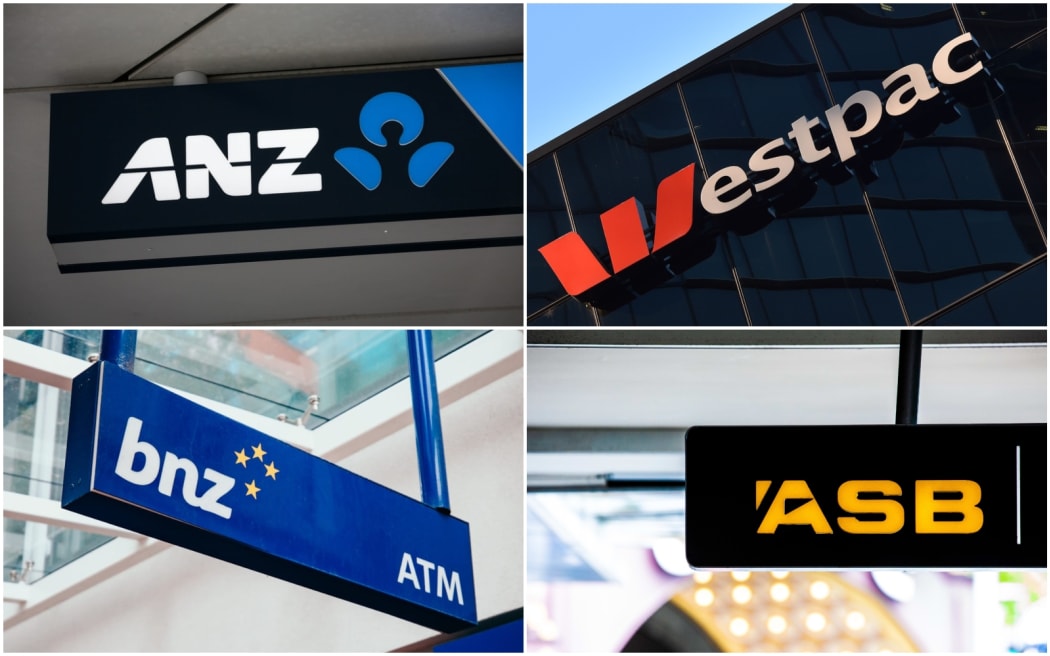
Westpac had the joint lowest rates advertised 54.5 percent of the time. File photo. Photo: RNZ
Which bank consistently offers the lowest advertised home loan rates? And does it actually matter?
Data compiled by economists Ed McKnight from Opes Partners shows that since August 2023, across all home loan rate terms, Westpac most often advertised the cheapest home loan rates.
It had the joint lowest rates advertised 54.5 percent of the time, and it had the strictly lowest rates 19.3 percent of the time.
BNZ was jointly lowest 42.9 percent of the time but only strictly lowest 3.5 percent. ASB was joint lowest 38.5 percent of the time and strictly lowest 2.5 percent.
Kiwibank was joint lowest 37.7 percent of the time and lowest 18.1 percent, and ANZ was joint lowest 29 percent of the time and strictly lowest 4.2 percent.
Over this same time period Kiwibank was most often the leader for a one-year term.
- Were we better off in the 80s? Listen to No Stupid Questions with Susan Edmunds
It had the lowest or co-lowest one-year rate 65 percent of the time and the absolute lowest rate 17 percent of the time. That's where they were unmatched by other banks.
McKnight said BNZ and TSB were close behind.
Westpac advertised the lowest two-year terms over the same period.
It was co-lowest 72 percent of the time time, followed by ASB and TSB co-lowest for 56 percent of the days tracked.
But McKnight said people generally spent too much time worrying about small differences in interest rates.
He said the advertised rates did not reflect the level of discounting banks would offer behind the scenes.
"ANZ typically advertises the highest four- and five-year interest rates. That's because they don't release special four- and five-year rates. So if you compare the long-term rates you see online between ANZ and other banks, they often appear more expensive.
"However, if you take out a mortgage through ANZ and choose those longer-term rates, they will typically discount them to a similar level to other banks."
He said people should instead look at the difference between banking products.
"ANZ and TSB are both offering 10 years interest-only. That's attractive for property investors who often want interest only for as long as possible.
"Or BNZ offers off-set accounts. So if you're the type of person who likes to bucket your money in different accounts, this can be a good way of saving interest, compared to if you use a bank that only uses a revolving credit.
"These are the sort of quirks that are hard to understand as an everyday person, which is why a mortgage adviser can be very helpful, because they can help you choose the right bank based on the types of mortgages and structures the bank offers. "
Claire Matthews, a banking expert at Massey University, agreed. "I think everything that goes with the relationship is more important. I would be concerned about a bank that is consistently higher or can be substantially higher. But unless a bank is always lower, which is unlikely, there is always the possibility that at the specific time someone is renewing their fixed rate or getting a home loan that the bank is not offering the lower rate. So it's worth looking at the comparative rates history, but I would not make it the focus of decision-making."
David Cunnigham, chief executive of Squirrel, said over a longer term there did not seem to be much difference.
"The leader constantly changes, and there is no one bank that leads or lags consistently. A couple of years ago, Kiwibank was the market leader for many months - that's when they had loads of capital, having just sold Kiwi Wealth, while ASB priced above the market. Kiwibank got hammered by a surge in volume and ultimately pulled back to the pack."
Sign up for Money with Susan Edmunds, a weekly newsletter covering all the things that affect how we make, spend and invest money.







